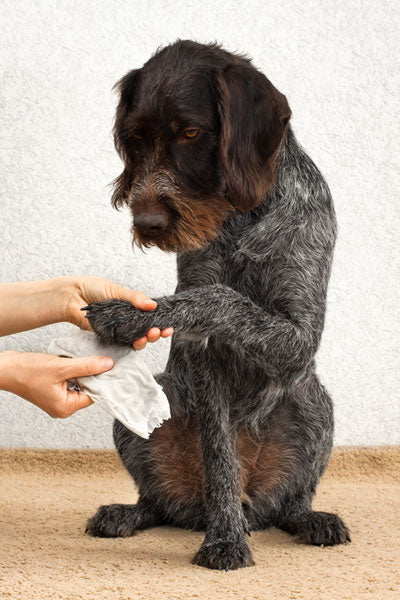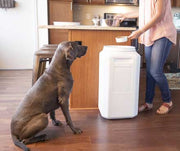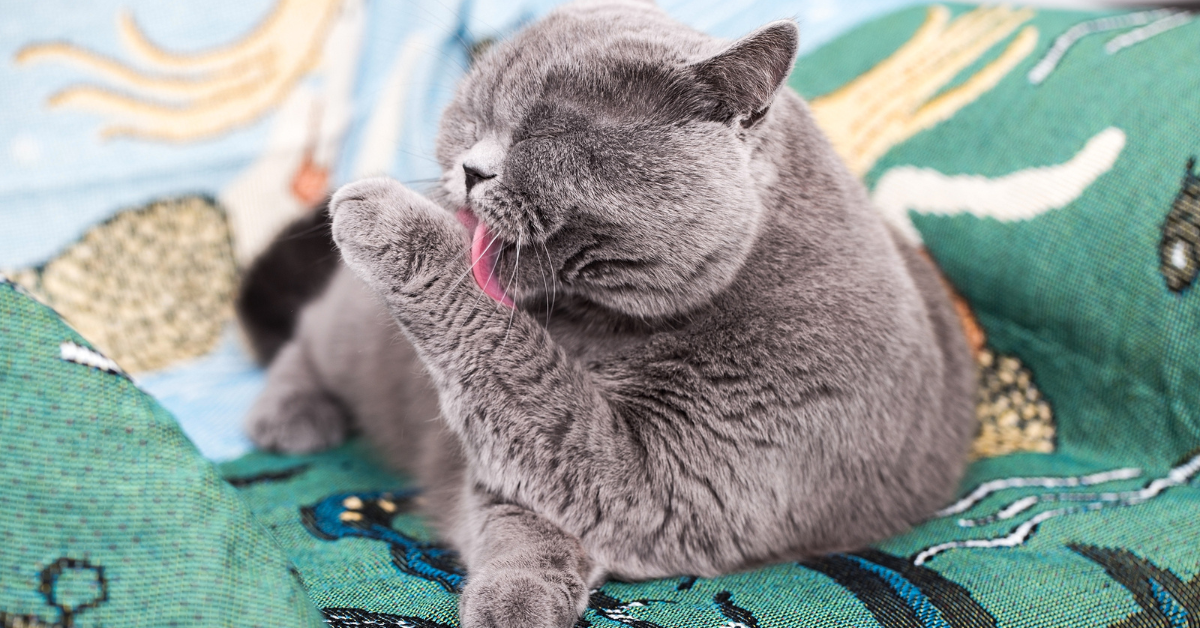Can Dogs and Cats Get Coronavirus?

UPDATED MAY 8, 2020 – Recently, there have been reports of a very small number of pets – 2 cats in different areas of New York – becoming infected with COVID-19. For the first cat, the owner had been diagnosed with Covid-19 and is believed to have transmitted the virus on to their cat. In the second cat's household, no member of the family had been affected, nor were they displaying symptoms. They believe the cat got the virus outside of the home. About a month earlier, a tiger at the Bronx Zoo in New York tested positive for the virus. Sadly, other tigers at the zoo are also displaying symptoms. It's believed that an infected employee of the zoo unknowingly passed it on to the tiger. The good news in all of these cases is that all are expected to make a full recovery.
Now that it's confirmed a pet can get Covid-19, the CDC has released guidelines we should follow when it comes to our pets. For cats, owners should try to keep their cats indoors as much as possible. For dogs, owners should avoid high traffic, public places like dog parks. If you must take your dog out in public with you, keep your dog on a leash and six feet away from humans and other dogs. Do not allow others to touch your dog. For owners who just can't avoid public places with their dogs, a dog city lead is a great way to keep your dog closer to you during these times. City leads are a type of dog leash that is shorter in length. Instead of measuring 6 feet long like a standard leash, they measure 4 feet long. This will help you have more control over how close your dog is able to get to people.
If you've tested positive or you're displaying symptoms, it's recommended that you let a family member or friend take care of your pet. However, we know that isn't always possible, so if you need a way to keep your dog occupied while you rest, try out treat dispensing toys or chew toys. This will help relieve some of your dogs energy and keep him mentally stimulated while your rest. If you are sick, protect your pets and limit your exposure to them. You should avoid contact with animals just like you do with humans. If you must touch your pet, wash your hands before and after.
If both you and your pet are feeling healthy and need a creative way to have fun, try out some games of fetch with indoor fetch toys! They won't scrape up the wall, are lightweight, and provides a way to stay home and stay safe while helping to release you and your dog's energy!
PUBLISHED FEBUARY 25, 2020 – Dogs and cats can get coronaviruses – the group of viruses that coronavirus belongs to. But, they are not at all the same as the virus associated with the current outbreak. If your cat has the feline coronavirus, they may not show or produce any symptoms except mild diarrhea. It can also lead to your cat contracting a disease called Feline Infectious Peritonitis, or FIP. According to Wendy Brooks, DVM, DABVP, Feline Infectious Peritonitis is an infectious disease that is not contagious, but has a 100% mortality rate. FIP stems from infection of coronaviruses within the intestines of a cat.
Table of Contents:
– SIGNS AND SYMPTOMS OF CORONAVIRUS IN PETS
– HOW TO KEEP PETS SAFE FROM CORONAVIRUS
– CAN PETS TRANSMIT THE CORONAVIRUS?
If your cat does test positive for coronavirus, it does not mean that they will get FIP. There is a chance that they would, but it is not a guarantee. If a dog contracts coronavirus, it is called Pantropic Canine Coronavirus. So far, there have only been outbreaks in France and Belgium, The CCoV (canine coronavirus) lives in the dog's intestines. In some cases, it can be extremely severe and cause mortality. The unfortunate parts of CCoV is that recent studies have shown that the virus no longer stays in the dog's intestines. It now moves to other organs as well.
Currently, the World Health Organization as of March 2020 has stated that there is no evidence that pets, such as dogs and cats have infected humans with COVID-19. There is also no evidence that a dog, cat, or any pet can transmit COVID-19. COVID-19 is mainly spread through droplets produced when an infected person coughs, sneezes, or speaks. However, dogs and cats can contract certain types of coronaviruses, such as Canine Respiratory Coronavirus, but again, this specific novel coronavirus (COVID-19), to date has shown not to be a threat to dogs or cats.
Healthy pet owners in the U.S. don't need to do anything other than follow basic hygienic precautions such as washing their hands with soap and water before and after contact with any animal, including dogs and cats. If you test positive for COVID-19 or have been exposed to it, experts recommend that you restrict contact with your pets, both to avoid exposing them and to prevent the virus from getting on their skin or fur, which could be passed on to another person who touches the animal. To reduce the spread of germs, you may consider wiping your pet's paws when they come in and out of the house.

SIGNS AND SYMPTOMS TO LOOK FOR
Watch for these signs if you think your pet may have a form of coronavirus that animals can get:
- Diarrhea
- Feeling lethargic
- Low appetite
- Low energy
- Runny nose
- High temperature
If your pet is displaying these symptoms, take them to the vet immediately without hesitation. There might be something your vet can do to fight the symptoms and make your pet more comfortable. The most important thing to do if your pet has a virus is to keep their environment as clean as possible and do everything you can to prevent the virus from turning into a mortal disease. Unfortunately, there are not any antibiotics that directly combat coronavirus. Your vet may prescribe an antibiotic to control secondary bacterial infections or to ease your pets symptoms.
If your dog or cat begins to show signs of contracting a virus and has diarrhea, one of the ways to tend to their intestinal problem is to withhold food for 24 hours. This will allow time for the infection to pass through their intestines. Once you wait 24 hours, you can start to slowly give your pet small, bland amounts of food at a time. This will help their tummy fight off the infection and allow time for their rectum to heal.
HOW TO KEEP MY PET SAFE FROM CONTRACTING CORONAVIRUS
According to VC Hospitals, pets can contract forms of the coronavirus by oral contact with infected fecal matter. There is also a possibility of them contracting the virus from coming into contact with infected food or bowls. Dogs typically do not show signs or symptoms until 4 days after contracting the virus. That means any dog you come into contact with at the dog park or other public spaces may be a CCoV carrier, but may not be exhibiting any signs yet. Any crowding and unsanitary conditions can also lead to passing the virus to other dogs. If you want to be 100% sure that you're not exposing your pet to any viruses, steer clear of dog parks, trails, boarding facilities, and other public spaces your dog may go.
Another way to keep your pet safe is the make sure that you do not allow your pet to come into oral contact with any foreign objects outdoors. Keeping your pet's daily encounters as sanitary as possible is the best front-line defense against the coronavirus. If you do want to allow your pet to enjoy the dog park, still feel free to do so. Just do not allow them to place their mouth on anything. Bring your own dog bowl and water and do not allow them to share bowls with any other dogs since the virus is transmitted orally.
CAN I GET CORONAVIRUS FROM MY PET?
The simple and comforting answer to the question above right now is no. So far, studies have shown that humans cannot contract coronavirus from their pets. With most viruses, humans and pets do not pass viruses to each other. To keep you and your pets safe, wash your hands for 20 seconds with soap and water. Do not cough into your hand. Instead cough into a tissue and throw it away immediately. If you do not have a tissue, cough into your arm. These small acts will keep both you and your pets healthy.
Sources:
- https://www.cnn.com/asia/live-news/coronavirus-outbreak-02-26-20-intl-hnk/h_6e598dbbde23a71c53679464996e3ff4
- https://veterinarypartner.vin.com/default.aspx?pid=19239&id=4951549
- https://onlinelibrary.wiley.com/doi/full/10.1111/j.1748-5827.2011.01178.x
- https://vcahospitals.com/know-your-pet/coronavirus-disease-in-dogs
- https://www.cdc.gov/coronavirus/2019-ncov/daily-life-coping/animals.html?CDC_AA_refVal=https%3A%2F%2Fwww.cdc.gov%2Fcoronavirus%2F2019-ncov%2Fprepare%2Fanimals.html
- https://www.nytimes.com/2020/04/06/nyregion/bronx-zoo-tiger-coronavirus.html
- https://www.cnn.com/2020/04/22/health/cats-new-york-coronavirus-trnd/index.html
Previous article

Next article

Related posts
View all-

5 Simple Tips to Make Sure Your Cat Drinks Enough Water
Ensuring your cat stays hydrated is important, but it can be challenging since many cats don't drink enough water. Dehydration can lead to kidney disease and other health issues. Fortunately, you can encourage your cat to drink more with a few simple changes. Read Article -

How to Keep Your Cat Busy at Night (So You Can Sleep)
For many cat owners, the quest for a good night's sleep while keeping their feline friends content and engaged can seem like a never-ending battle. Cats, naturally more active at night or early in the morning, often disrupt your sleep schedules with nocturnal activity, whether through playful nature or seeking attention. Read Article -

Should You Bathe Your Cat? Everything You Need to Know About Cat Hygiene
When it comes to cat hygiene, a common question among cat owners is, "Should you bathe your cat?" Understanding how to care for felines, especially bathing cats properly, is crucial for maintaining their overall health. Most cats are fastidious groomers, but specific scenarios like long-haired cats getting dirty or skin irritations, might require a bath.
Read Article





